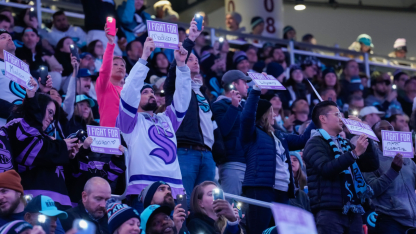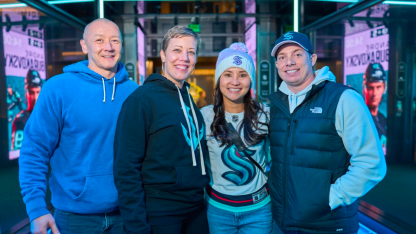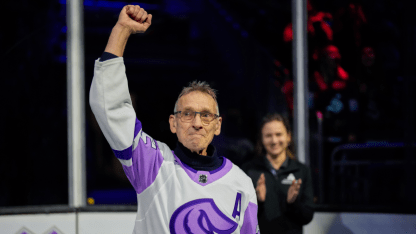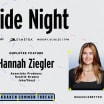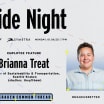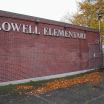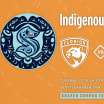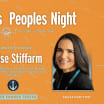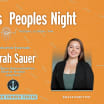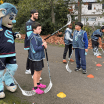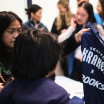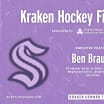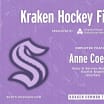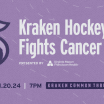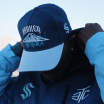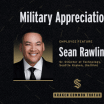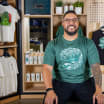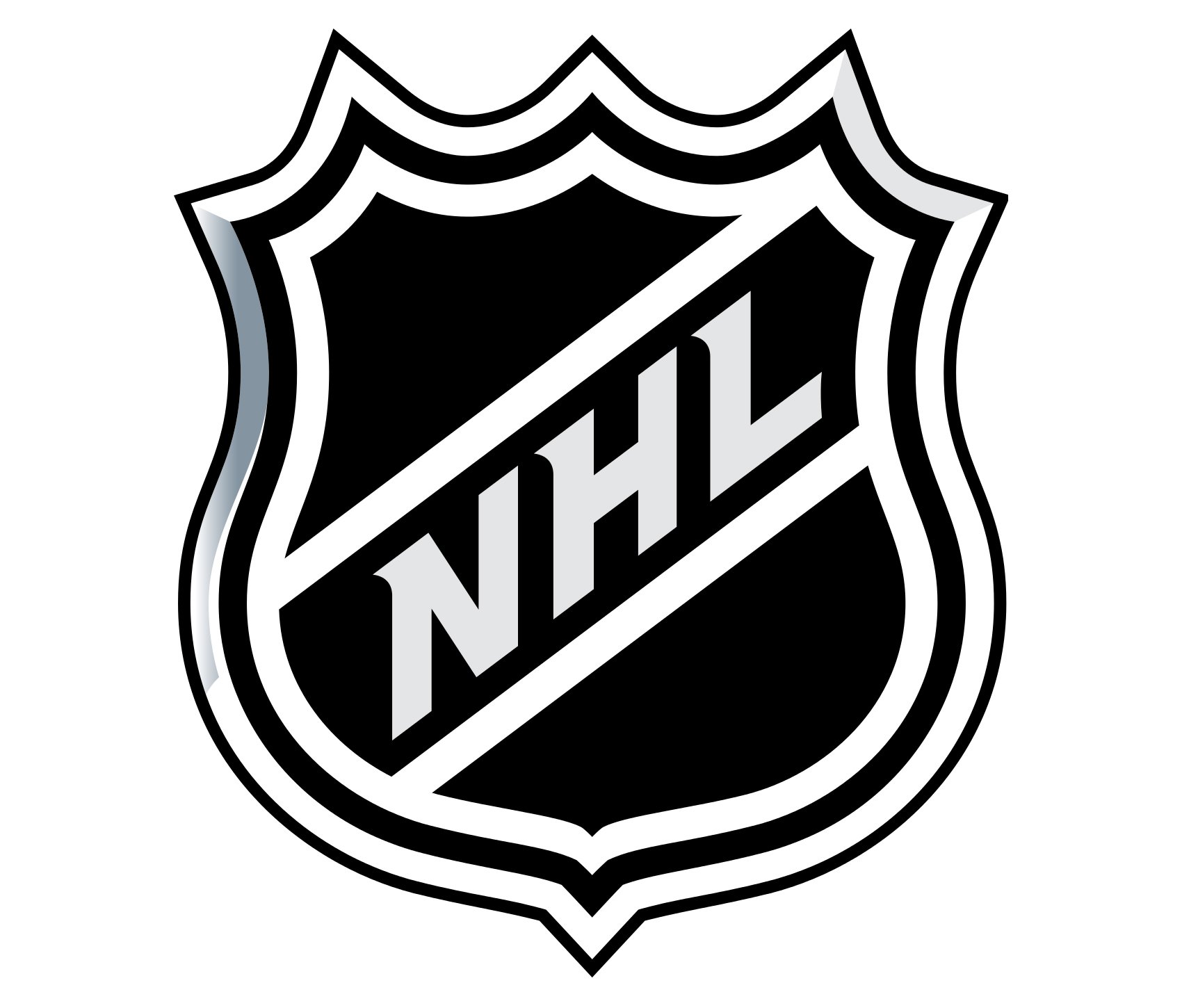A Story of Support
“Kathy” was diagnosed with breast cancer in February of 2020. A shooting pain in her breast led her to see a doctor and she was diagnosed with Stage 4 breast cancer. Among her team of medical professionals was oncologist, Dr. Meaghan O’Malley of Virginia Mason Franciscan Health.
“Dr. O'Malley said we're just going to treat it like we can cure it,” Kathy said.
After rounds of chemotherapy and radiation as well as a bilateral mastectomy, Kathy is doing well and three post-treatment CAT scans show that.
“Dr. O’Malley is so caring,” Kathy said. “She talks to you like you're a human being. She is open and honest. She answers any questions you have. And like I said, she said ‘we're going to treat this as if we can cure it, even though it was stage four. Let's just give it a shot.’ We did and so far, so good.”
Dr. O’Malley and Kathy were in the Virginia Mason Franciscan Health hosted suite on Hockey Fights Cancer night. And Kathy was blown away by the support of the Kraken organization and its fans. She says we have to keep highlighting the importance of early detection and seeking treatment as well as offering support – because too many people take their health for granted. “Early detection would have saved me from probably going through everything that I went through.”
A Story of Hope
No matter who you spoke with, when asked what one of the most poignant moments of the evening was, the answer came quickly. “The throat cancer survivor who sang the national anthem.”
That singer is Paul Klein. Known as the anthem singer for the Seattle Thunderbirds, Klein sang the anthem at last year’s Hockey Fights Cancer game, as well. But, as he was still in treatment, his voice struggled, and so the voices of the crowd around him joined in. When Klein (who got the ‘all clear’ from his medical team in July) got the invite to sing at this year’s game, it meant “everything.”
As a lover of hockey (and goalie in local rec leagues), Klein explained it in terms of the sport.
“Last year I felt like the EBUG (emergency goalie),” Klein said. “This year I felt like the call up from Coachella. I felt like, as Dave Hakstol says about call-ups, ‘he's earned this opportunity.’
“Last year it was an achievement. This year, it felt like a responsibility. I wanted to do it again from a different perspective. I wanted to show that we can make it through hard things, right?”
Mission accomplished. To people in all stages of fighting cancer, it stood out as a beacon of survivorship – life returning to normal - perhaps better! – after a hard-fought battle.

